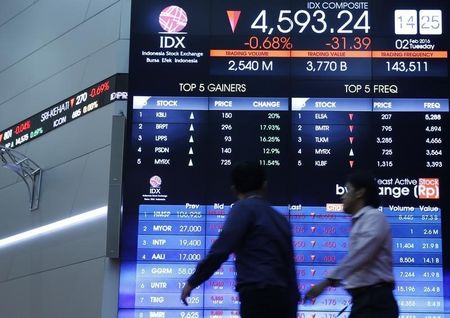Indonesia Adds $1.8 Billion of Cash Handouts in Latest Stimulus
PositiveFinancial Markets

Indonesia is stepping up its economic support by introducing an additional $1.8 billion in cash handouts to boost consumer spending. This move comes in response to growing concerns about the weak job market and slow wage growth, aiming to provide relief and stimulate the economy. It's a significant effort to ensure that citizens have the financial means to support themselves during challenging times.
— Curated by the World Pulse Now AI Editorial System













